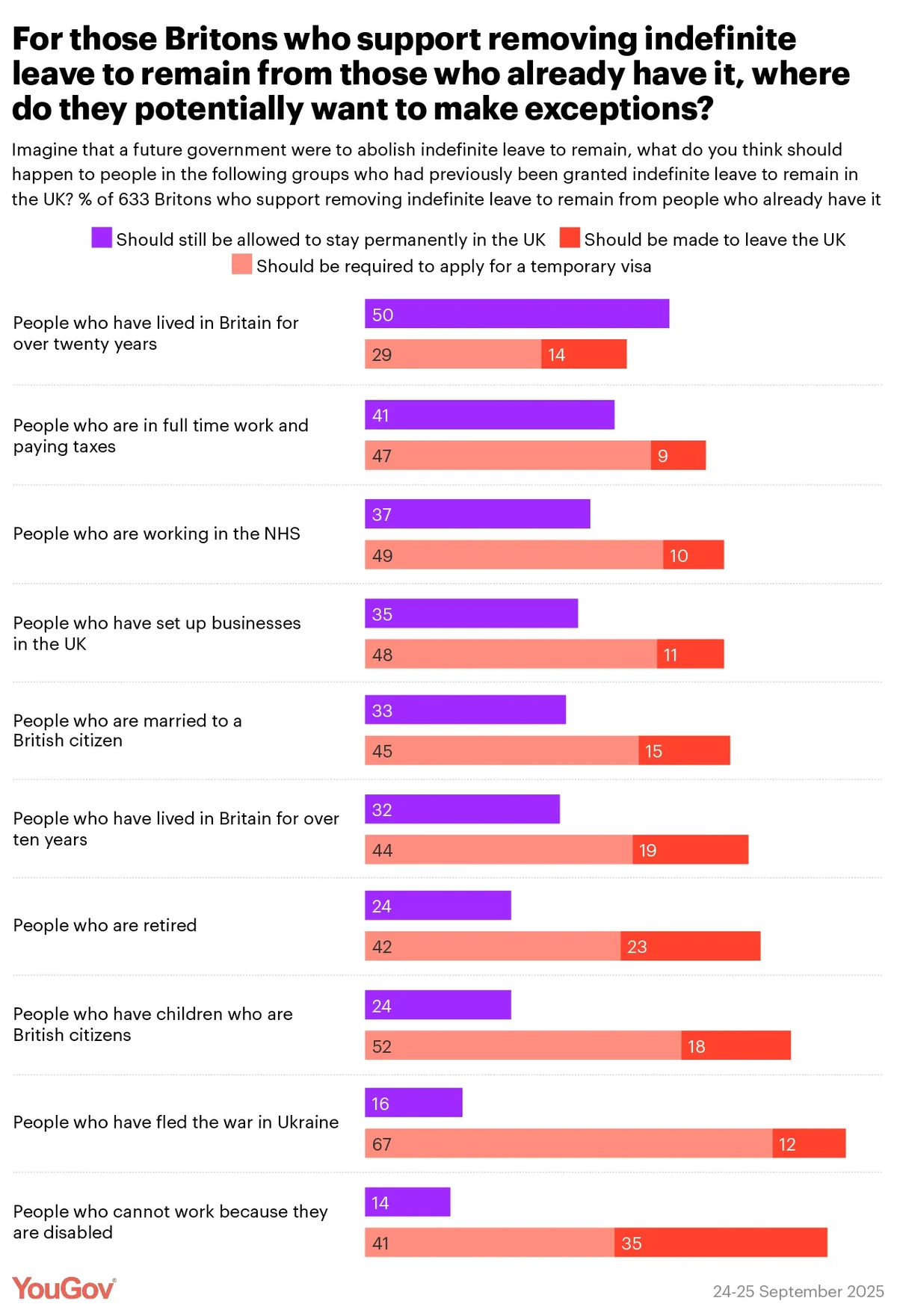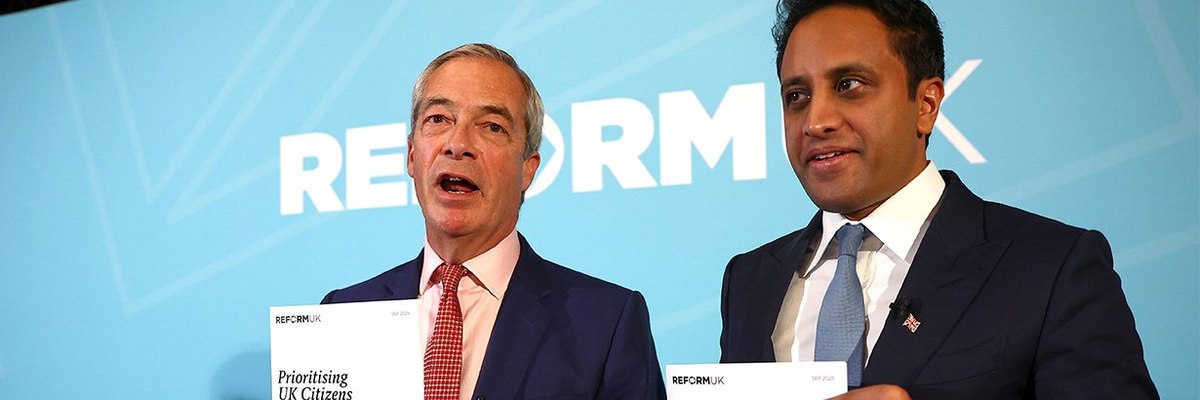Ending the granting of ILR divides the public – and most are opposed to removing it from those who already hold it
At the beginning of this week, Nigel Farage announced proposals to abolish indefinite leave to remain (ILR), instead requiring migrants to reapply for a visa to stay in the UK every five years.
The move has come in for significant criticism from the party’s opponents, and a new YouGov survey finds that the prospect of ending the granting of ILR divides the public: 44% say they support doing so, while 43% are opposed.
If ending the granting of ILR is divisive, removing it from current holders is downright unpopular. Support for removing ILR from those who have already been given permission to reside permanently in the UK falls to 29% – even among those who support ending the granting of ILR, only a minority (41%) agree with stripping permanent residency rights from those already granted them.
The majority of Britons (58%) are opposed to removing indefinite leave to remain status from those who already hold it.
The public think exceptions should be made for significant numbers of people if ILR status were scrapped
Critics of the Reform proposals have highlighted groups for whom the move would be particularly disruptive, like families who would be broken up, as well as Ukrainians sheltering in the UK.
Again, the data shows that the public would want to make significant exceptions to ILR removal.
In a three-way choice on whether certain groups of current ILR recipients should a) continue to be allowed to stay permanently, b) have to apply for a temporary visa or c) be made to leave the UK, the majority of the public want to continue allowing permanent residency for: those who have lived in Britain for over 10 years; those in full time work and paying taxes; NHS workers; those married to a British citizen, or those with children who are citizens; and those who have set up businesses in the UK.
With new Reform MP Danny Kruger denying that the party’s proposals constitute a “pensioner deportation programme”, the public are also more likely to say retired people with ILR status should still be allowed to stay permanently (49%) than to say they should have to apply for a visa or be removed (26% and 9% respectively).
The public are more divided on Ukrainian refugees – 44% say they should be allowed to stay permanently, while 43% say they should have to stay on a visa and 5% that they should be removed.
The public are most likely to say that those in the UK on ILR who cannot work because they are disabled should either be removed (16%) or made to apply for a temporary visa (29%) – a comparatively low 39% think they should also be allowed to stay indefinitely.
When it comes to the 29% of Britons who support removing indefinite leave to remain from people who already have it, the only exception they tend to make is for those who have been in the UK for at least 20 years. Half (50%) say this group should still be allowed to stay in the UK permanently, compared to 43% who think they should either require temporary visas on an ongoing basis (29%), or be removed entirely (14%).
Otherwise, the majority want to see permanent residency removed from each group. In terms of combined figures, the group they are most likely to want to remove ILR from are Ukrainian refugees, at 79%.
However, this includes only 12% who want to remove Ukrainians from the UK, rather than allow them to stay on temporary visas; they are much more likely to want to outright remove those with disabilities who cannot work (35%) and people who are retired (23%).

How does support for changes to indefinite leave to remain break down by party?
Unsurprisingly, Reform UK voters are the most likely to support ending indefinite leave to remain. Two thirds (64%) support ending the granting of ILR, while 54% back removing it from those who already have it.
While Conservative voters back no longer granting ILR (51%), they are divided on removing it from those who already hold it, with 44% in favour of doing so and 42% against.
When it comes to ending the granting of ILR, sizeable minorities of Labour (40%), Lib Dem (37%) and Green (35%) voters are also in favour – but in each case are outnumbered by those opposed (50-57%). However the large majority are opposed to removing the status from those who already have it (71-80%).
When examining support for removing ILR from specific groups, Reform UK voters are the most likely to say that any given group be required to get temporary visas or be removed entirely. Indeed, the majority of Reform voters give this answer so for almost all groups – the exception are those who have lived in the UK for over 20 years, whom only 38% of Reform voters think shouldn’t be allowed to stay permanently.
Most Conservative voters would strip ILR status from Ukrainian refugees (61%), those who cannot work due to disability (62%) and those with children who are British citizens (57%), but fewer than half agree in the case of any other group.
Likewise, fewer than half of Labour, Lib Dem and Green voters would support removing ILR status from any of the groups we asked.
What do you think about scrapping indefinite leave to remain, the subject of immigration in general, and everything else? Have your say, join the YouGov panel, and get paid to share your thoughts. Sign up here.
Photo: Getty










